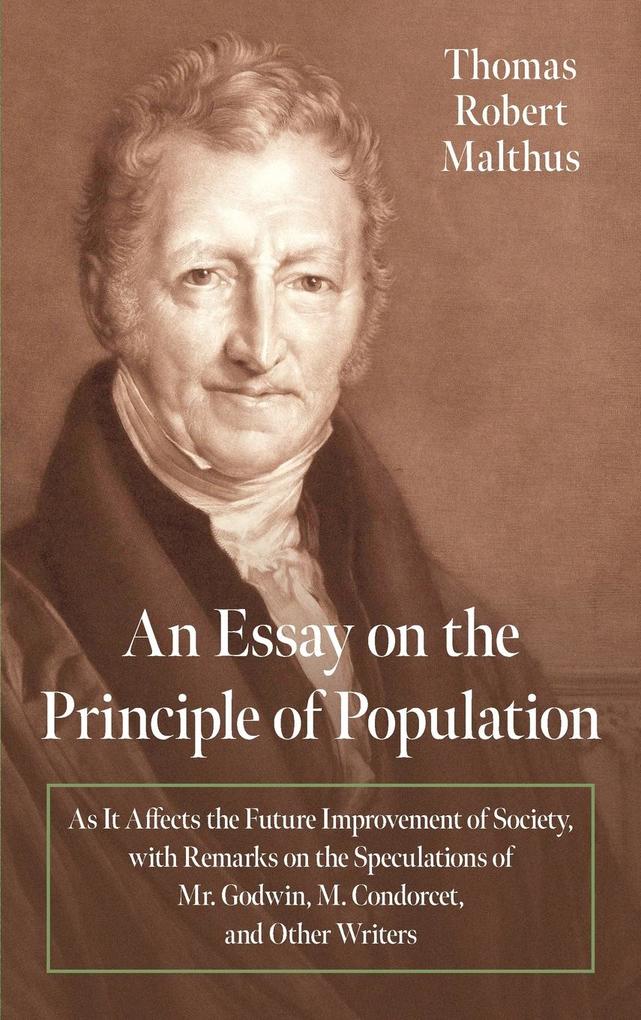
Zustellung: Mo, 26.05. - Sa, 31.05.
Versand in 2 Wochen
VersandkostenfreiBestellen & in Filiale abholen:
Reprint of the Very Rare First EditionOne of the most influential works of political economy, this book had a profound effect on social policy during the nineteenth century. Malthus's central thesis is that population increases geometrically while food supplies increase arithmetically, a dynamic which will eventually lead to starvation and disease in the poorest sections of the community. To prevent this from happening, he posits, people, especially the poor, should have children later in life and limit the size of their families. The poor laws, which in his view tend "to create the poor which they maintain," must be reformed to incentivize this. First published anonymously and later under Malthus's own name, the work went through six editions between 1798 and 1826. It was the guiding spirit behind many of the reforms to social welfare in Great Britain during this time, including the Poor Law Amendment Act of 1834, which established the infamous workhouse system. Although Malthus failed to predict the Industrial Revolution and other advances in technology, his work had an indelible impact on socio-economic policy and influenced the development of evolutionary biology. An Essay on the Principles of Population remains an essential classic of history, political economy and social science. ix, 396 pp.
Produktdetails
Erscheinungsdatum
21. April 2025
Sprache
englisch
Seitenanzahl
420
Autor/Autorin
Thomas Robert Malthus
Verlag/Hersteller
Produktart
gebunden
Gewicht
730 g
Größe (L/B/H)
229/152/27 mm
ISBN
9781584777281
Bewertungen
0 Bewertungen
Es wurden noch keine Bewertungen abgegeben. Schreiben Sie die erste Bewertung zu "An Essay on the Principle of Population [1798]" und helfen Sie damit anderen bei der Kaufentscheidung.










